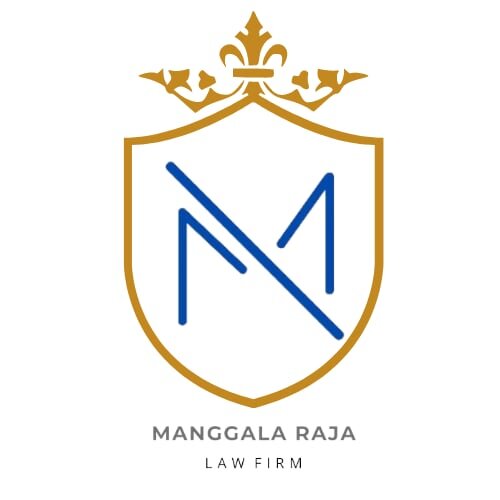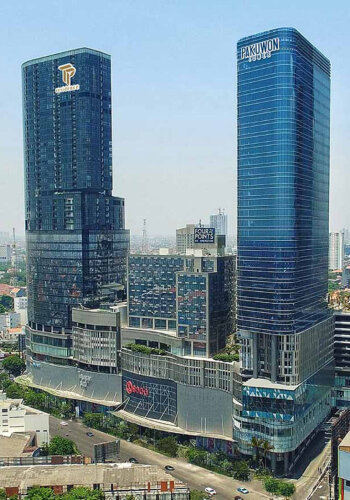Best Franchising Lawyers in Indonesia
Share your needs with us, get contacted by law firms.
Free. Takes 2 min.
Or refine your search by selecting a city:
List of the best lawyers in Indonesia
About Franchising Law in Indonesia
Franchising in Indonesia has become an increasingly popular business model, largely due to the country's burgeoning consumer market and its rapid economic development. The franchise sector enables businesses to expand their reach while allowing entrepreneurs to benefit by operating an established brand. Franchising in Indonesia is regulated under the Ministry of Trade, which oversees the registration and operation of franchises to ensure compliance with local laws. Businesses seeking to establish a franchise must adhere to several specific requirements and obtain relevant approvals from the Indonesian government.
Why You May Need a Lawyer
Engaging a lawyer with expertise in franchising law can be essential in navigating the complexities of setting up and operating a franchise in Indonesia. Key situations where legal assistance may be required include:
- Drafting and reviewing franchise agreements to ensure they protect your interests.
- Understanding and complying with local legal requirements and obtaining franchise registration.
- Resolving disputes between franchisors and franchisees, or other third parties.
- Advising on trademark issues, licensing, and intellectual property rights.
- Assisting with expansion plans, renewals, or termination of franchise agreements.
Local Laws Overview
Franchising in Indonesia is principally governed by the Government Regulation Number 42 of 2007 concerning Franchising, and by the Ministry of Trade Regulation Number 53/M-DAG/PER/8/2012. Key aspects to be aware of include:
- A franchise must be registered with Indonesia's Ministry of Trade to legally operate in the country.
- The franchisor must provide a prospectus that includes financial reports, a business overview, and details of the franchise agreement.
- The franchise agreement must be drafted in Indonesian, and it must clearly outline the rights and responsibilities of both parties.
- Franchises are subject to compliance inspections and are required to submit regular reports to the Ministry.
- Renewal, extension, and transfer of franchise agreements are subjected to specific regulations.
Frequently Asked Questions
What is the first step in opening a franchise in Indonesia?
The first step is to conduct thorough market research and ensure you understand the franchise system and local market. Following that, you should engage with legal counsel to help manage legal requirements and registration.
Do I need to register my franchise in Indonesia?
Yes, all franchises must be registered with Indonesia's Ministry of Trade. Non-compliance can result in fines and the cessation of business operations.
What must be included in a franchise agreement?
A franchise agreement in Indonesia should include intellectual property rights usage, the terms for franchise fees, operational standards, duration of the agreement, and rights/responsibilities of both franchisor and franchisee.
Can a foreign franchisor establish a franchise in Indonesia?
Yes, foreign franchisors can establish franchises in Indonesia, but they must comply with local franchise regulations, including registration and the use of Indonesian language documentation.
What are the franchise fees in Indonesia?
Franchise fees can vary widely based on the business sector, brand, and scope of the franchise. Legal advice can help you identify standard market rates and structure fees accordingly.
How long is a typical franchise agreement valid in Indonesia?
The duration of a franchise agreement can vary but is typically between 5 to 10 years. It is subject to mutual agreement and must comply with legal stipulations.
Can I terminate my franchise agreement early?
Yes, early termination is possible but typically subject to specific penalties and conditions outlined in the franchise agreement. Legal advice is recommended when considering termination.
Do franchisors have to provide training to franchisees?
Most franchise agreements include provisions for initial and ongoing training, as the franchisor must ensure consistency in service and quality across all franchisee locations.
What are my responsibilities as a franchisee in Indonesia?
Responsibilities generally include adhering to brand standards, paying royalties and fees, maintaining business operations as per the franchisor's guidelines, and fulfilling the terms of the franchise agreement.
What happens if one party breaches the franchise agreement?
In cases of breach, the non-breaching party can seek remedies as per the agreement terms, which may include penalties, damages, or even the right to terminate the agreement. Legal intervention may be necessary to resolve disputes.
Additional Resources
Consider exploring the following resources to better understand franchising in Indonesia:
- The Ministry of Trade (Kementerian Perdagangan) provides detailed regulations and updates related to franchising.
- Indonesia Franchise Association (AFI) is a useful organization offering additional insights and networking opportunities for franchisors and franchisees.
- Publications from local law firms specializing in franchising can provide industry-specific insights and guidance.
Next Steps
If you need legal assistance with franchising in Indonesia, consider taking the following steps:
- Conduct thorough research and document any specific questions or concerns regarding your franchise plan.
- Consult with a lawyer who specializes in Indonesian franchising law to clarify requirements and navigate legal processes.
- Ensure all necessary documents are correctly prepared, translated, and filed with the pertinent authorities.
- Engage with professional networks and associations to remain informed and connected to current best practices and legal requirements.
Lawzana helps you find the best lawyers and law firms in Indonesia through a curated and pre-screened list of qualified legal professionals. Our platform offers rankings and detailed profiles of attorneys and law firms, allowing you to compare based on practice areas, including Franchising, experience, and client feedback.
Each profile includes a description of the firm's areas of practice, client reviews, team members and partners, year of establishment, spoken languages, office locations, contact information, social media presence, and any published articles or resources. Most firms on our platform speak English and are experienced in both local and international legal matters.
Get a quote from top-rated law firms in Indonesia — quickly, securely, and without unnecessary hassle.
Disclaimer:
The information provided on this page is for general informational purposes only and does not constitute legal advice. While we strive to ensure the accuracy and relevance of the content, legal information may change over time, and interpretations of the law can vary. You should always consult with a qualified legal professional for advice specific to your situation.
We disclaim all liability for actions taken or not taken based on the content of this page. If you believe any information is incorrect or outdated, please contact us, and we will review and update it where appropriate.
Browse franchising law firms by city in Indonesia
Refine your search by selecting a city.

















